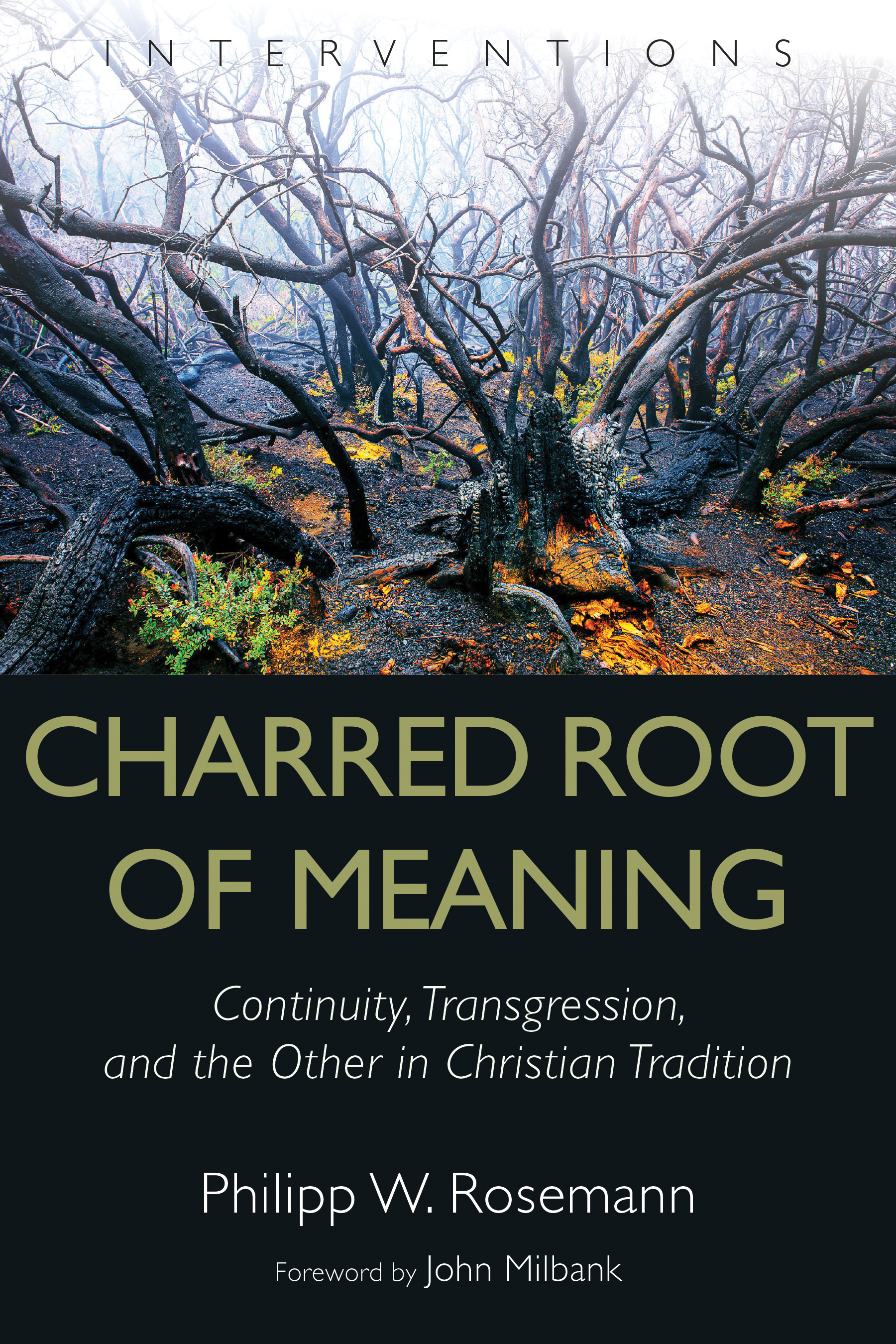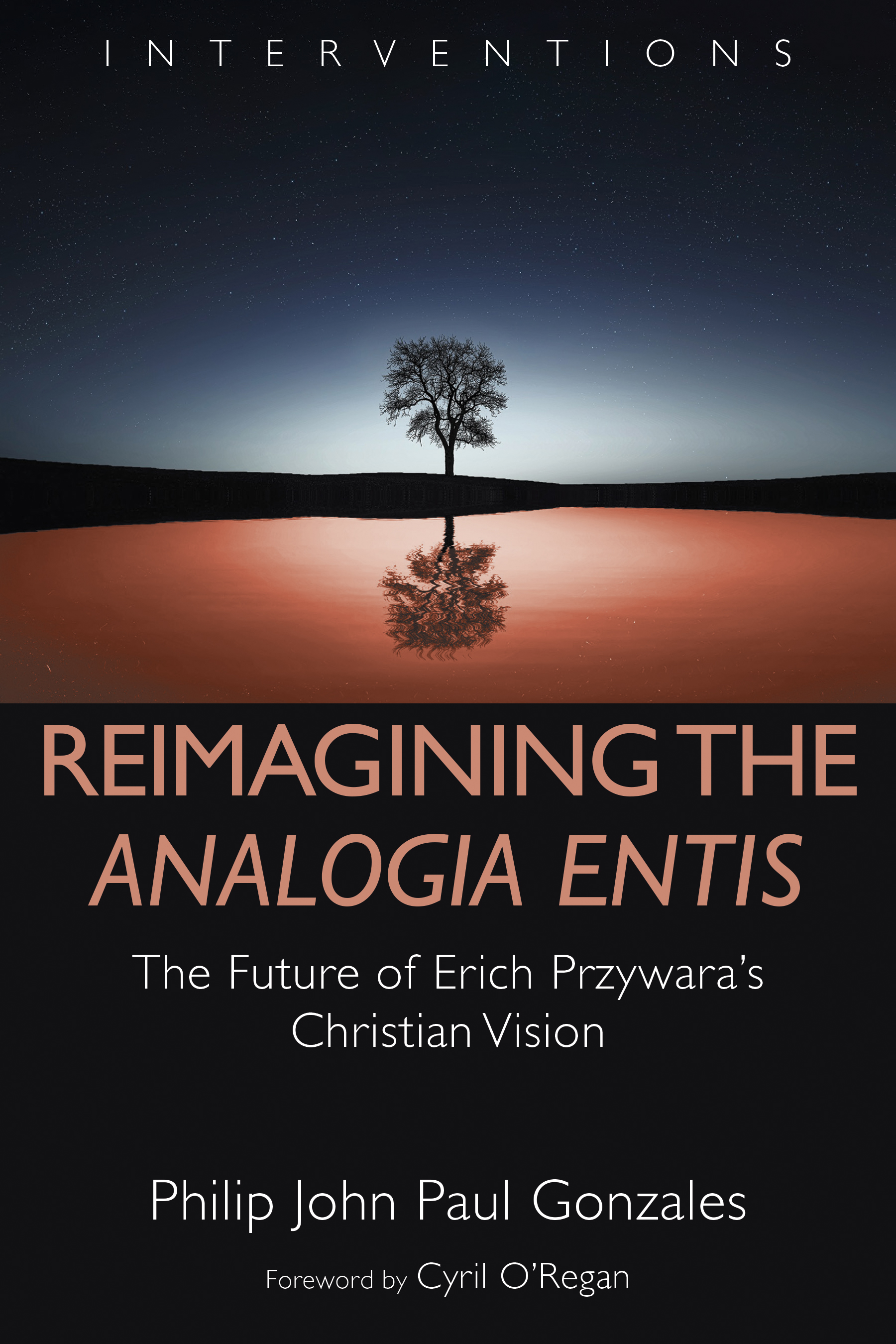 New from Philipp W. Rosemann in the Interventions series, with a foreword from John Milbank:
New from Philipp W. Rosemann in the Interventions series, with a foreword from John Milbank:
Charred root of Meaning:
Continuity, Transgression, and the Other in Christian Tradition
Purchase: Amazon.com | Amazon.co.uk
Description:
Ecologists tell us that periodic wildfires, though devastating, are necessary to the rhythm of nature. The death of the old allows something new to grow, sometimes straight back from the charred roots. Christian tradition functions much the same way, says Philipp Rosemann. In this book he examines how transgression and destruction are crucial in the foundation and preservation of tradition.
Theories of tradition have emphasized the handing-down of identity rather than continuity through difference. Rosemann shows that divine revelation occurs as an irruption that challenges the existing order. The preservation of tradition, he argues, requires that this challenge be periodically repeated. Offering a historical, theological, and philosophical approach to Christian tradition, Charred Root of Meaning shows how transgression and reformation keep the Christian faith alive.
Reviews:
“ ‘Transgression’ is constitutive of the Christian tradition, Philipp Rosemann argues, yet transgression is nothing without the tradition whose roots it seeks to lay bare. From close reading of Scripture to unpacking an anonymous early gloss on the Sentences of Peter Lombard, from Denys the Carthusian’s mystical reading of his scholastic forbears to Luther’s influence on Heidegger, from Dionysius the Areopagite to Foucault and Derrida, Rosemann crosses conventional academic boundaries with sure-footed ease to make his case. Anyone who cares how the Christian tradition holds together will be provoked, stimulated, and informed by what he says here.” — Bruce D. Marshall, Perkins School of Theology, Southern Methodist University
“In this remarkable and arresting book, Philipp Rosemann rewrites accounts of tradition in the unfolding of the Christian legacy. As he shows, its continuity does not preclude decisive episodes of both rupture and return, nor of ambiguity, in which universal liberation may entail new and specific repressions. With great originality, Rosemann argues that catholic truth resides somewhere between revolutionary ‘despoliation’ and a renewed ‘literal’ respect even for the apparently superseded other.” — Catherine Pickstock, University of Cambridge
“This is a marvelous meditation on tradition and transgression, whose inextricable connection is explored with respect to the Christian tradition from Jewish origins to problematic postmodernism. Its range extends from Foucault, Heidegger, and Kant to Peter Lombard, Pseudo-Dionysius, and Augustine. . . . It is as alert to the connection of devotion and transgression in the Middle Ages as it is to the empty impertinence of some contemporary forms of transgression. . . . A remarkable, indeed outstanding book. Very warmly recommended.” — William Desmond, Villanova University, Katholieke Universiteit Leuven
“Philipp Rosemann is a very unusual historian of theology and philosophy whose work is always informed by strongly theoretical interests, deeply explored, yet lightly borne and lucidly expounded, as the reader of this book will quickly discover. . . . The remarkable unity of Rosemann’s ultimate vision shines through all the careful scholarly precision and ecclesial good sense of this work.” — John Milbank (from the foreword), University of Nottingham
Purchase: Amazon.com | Amazon.co.uk
Forthcoming later this month:

Reimagining the Analogia Entis: The Future of Erich Przywara’s Christian Vision
by Philip John Paul Gonzales, with a foreword by Cyril O’Regan
Purchase: Amazon.com | Amazon.co.uk
Description:
In 1932 German theologian and philosopher Erich Przywara penned his Analogia Entis, a vision of the analogy of being and a metaphysical exploration of the dynamic between God and creation. A translation into English in 2014 made Przywara’s brilliant and influential work available to more people than ever before.
In this book Philip Gonzales calls English-speaking readers to embrace the Christian treasure of the Analogia Entis and to reimagine what it offers Christians today. Gonzales brings Przywara’s text into dialogue with debates in contemporary philosophy and theology, engaging in conversation with Edith Stein, Karl Barth, Martin Heidegger, the Nouvelle théologie, Vatican II, and leading figures in postmodern theology and the Continental turn to religion. The first book of its kind in English, Reimagining the “Analogia Entis” articulates a Christian vision of being for the postmodern era.
Reviews:
“I could give no better endorsement of Philip Gonzales’s excellent study of Erich Przywara than to quote from it. For anyone ‘seeking an antifoundationalist postmodern understanding of Christian philosophy,’ or how to strike an analogical balance between the discourses of philosophy and theology, ‘Przywara surely takes us forward.’ In this book Gonzales tells us with gusto why and how this is so. For decades Przywara has been neglected, and until now few have recognized the profound relevance of his thought for contemporary philosophy and theology. With the publication of this book—among the first significant receptions of his thought in the Anglophone world—it is safe to say that that time has now passed. With this pioneering study Christian philosophers and theologians can now get on with the task of appreciating Przywara’s gift to the church.” — John Betz, University of Notre Dame
“It is hugely opportune that this excellent book should appear now. It is the perfect complement to the recent appearance of Erich Przywara’s Analogia Entis in its first English translation (also with Eerdmans). Gonzales has a superb knowledge of Przywara and offers an illuminating account of his work that helps us understand its complexity and richness. He paints a richly informed picture of the context of Przywara’s thought and offers a compelling dialogue between Przywara and Edith Stein, illuminating the contrast between sapientia and scientia. The book makes a convincing case for the relevance and continued importance of Przywara’s thought to current debates. An impressively thoughtful and indispensable contribution, very highly recommended.” — William Desmond, Villanova University
“Philip Gonzales has here achieved a remarkable expansion and updating of the analogical metaphysics of Erich Przywara. Analogy comprises both being and revelation and a tensionality not just between God and creation but between essence and existence, past and future, potential and fulfillment. Therefore a metaphysics of analogy must be as much believed in as argued for, lived as much as believed, and hoped for through a welcoming of the fire of sanctity as much as lived. More radically than ever, Gonzales suggests that the biblical, Catholic horizon offers the only credible philosophy that is not a mere surrender to despair.” — John Milbank, University of Nottingham
“Gonzales is that rare combination of exceptional scholar and visionary philosopher; he has shaken the dust off the analogia entis and, like Przywara, opened up worlds of conversation, communion, and nuance. Breathtaking, exhilarating, and grounded in the Christocentric substance which alone discloses truth, this book is indeed an analogia caritatis—an essential, graceful, and rewarding journey.” — Caitlin Smith-Gilson, University of Holy Cross, New Orleans
“Erich Przywara responded to the crisis of modernity with a profound and creative philosophy that sprang from the heart of the faith. In this book Philip Gonzales springs from the theological heart of Przywara’s philosophy to respond to the thinkers of postmodernity; in so doing, Gonzales offers the valuable service of making Przywara’s notoriously difficult thought more widely accessible.” — D. C. Schindler, Pontifical John Paul II Institute
Purchase: Amazon.com | Amazon.co.uk








Discussion
Comments are turned off.
Comments are closed.